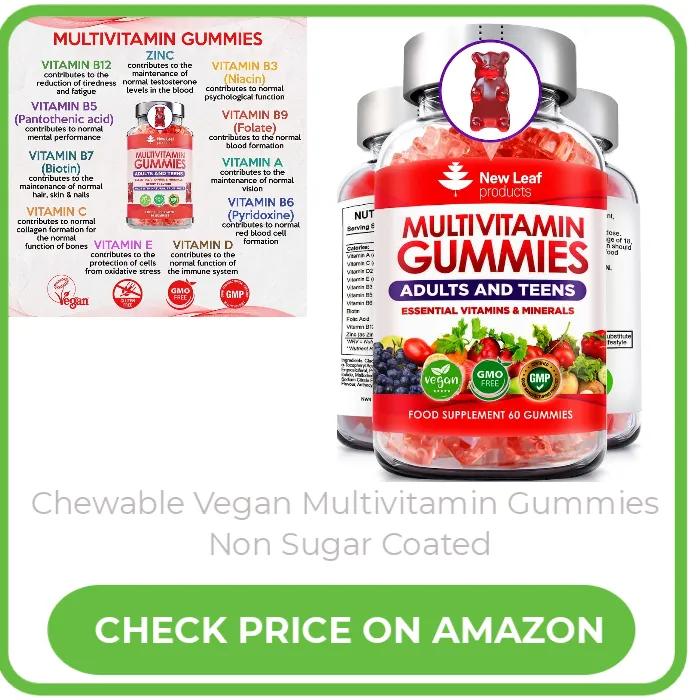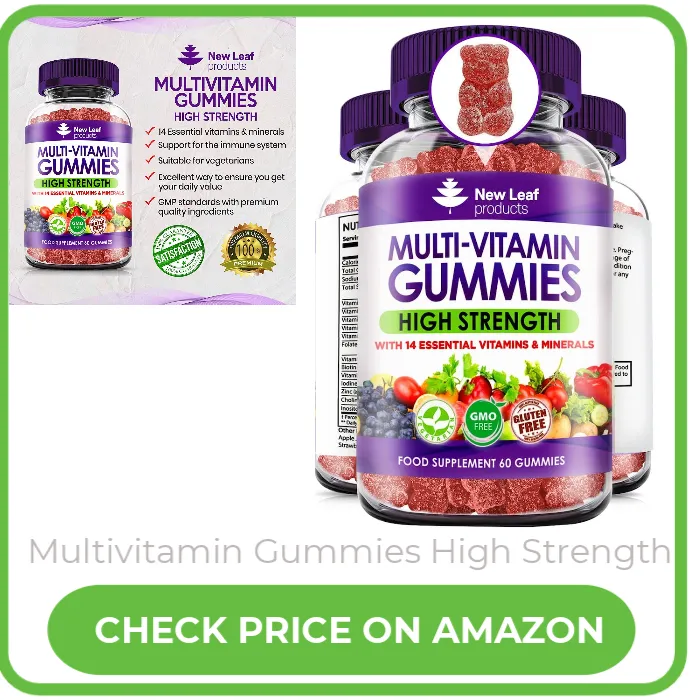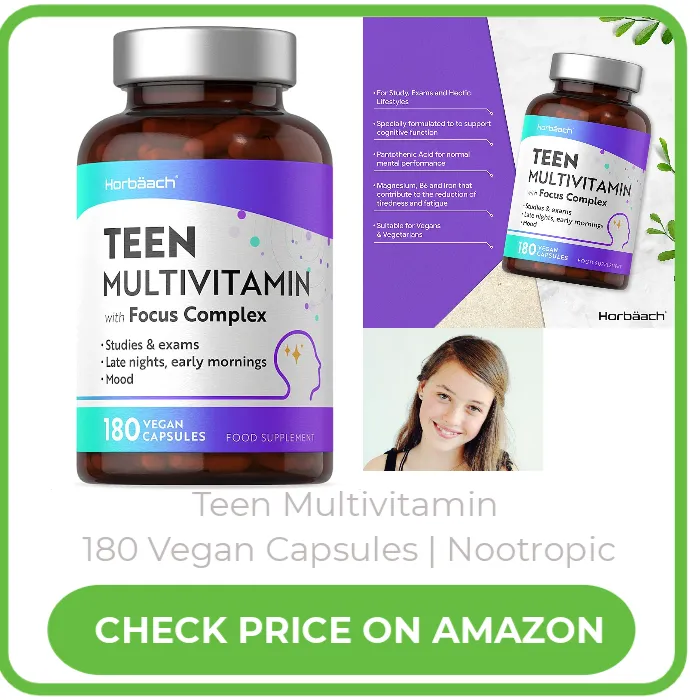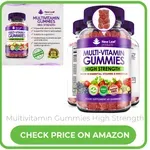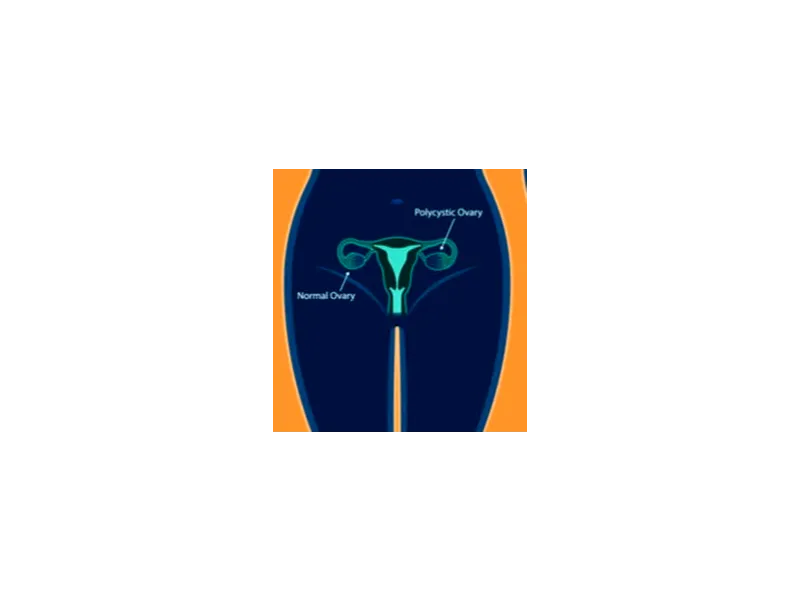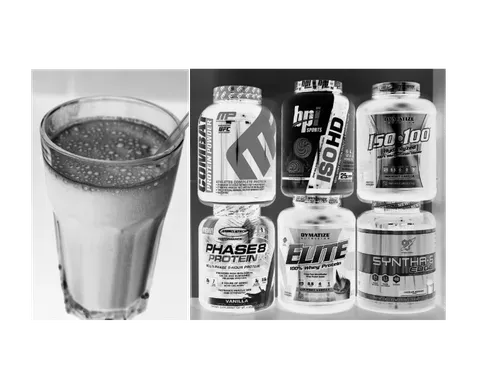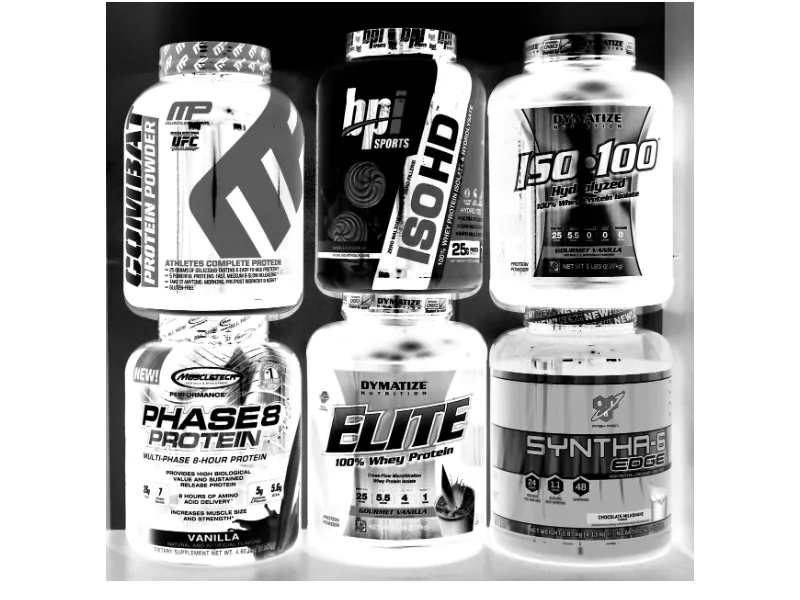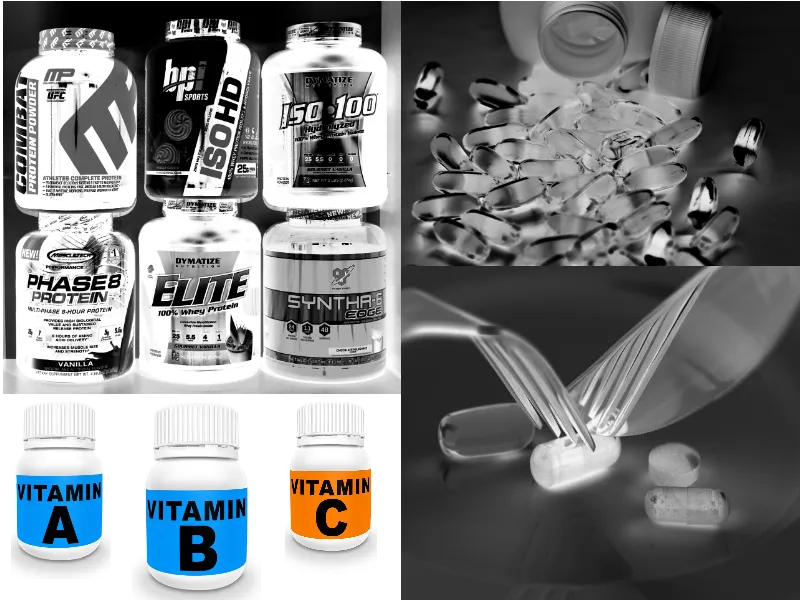Multivitamins for Teens
Best Multivitamins for Teens
If your teenager has a busy schedule, is stressed out and doesn’t eat well on a regular basis, then he/she needs some extra help to stay healthy. And, although your teen should still maintain a balanced diet, as usual, taking a daily multivitamin supplement can be an effective way of improving his/her overall health.
Multivitamins for teens come in many different forms. Some contain iron, while others include other vital nutrients like calcium and vitamin D. In addition, there are also multivitamin tablets specifically designed for teenage boys.
There are two main reasons why parents buy multivitamins for their kids. The first reason is that these supplements provide children with a complete nutrition program at a reasonable cost.
I see that vitamins and minerals are important for overall health. Vitamin A helps with vision, bone growth, muscle strength, and skin health. It can also boost immune system function. However, too much vitamin A causes cancer, and it's important to be careful about taking too much vitamin A. You can get vitamin A from fruits and vegetables, as well as from animal products such as milk and eggs.
Vitamin B complex (B1, B2, B3, B5, B6, B7, B9, B12, folic acid, biotin) are involved with metabolism, energy production, and the functioning of the nervous system. Vitamin C is an antioxidant and promotes growth and repair of tissues. Vitamin D helps to regulate blood calcium levels and maintains proper kidney function. Vitamin E protects the body against free radical damage, and it's necessary for skin and eyes health.
Minerals are vital for health. Calcium, iron, magnesium, phosphorus, potassium, and zinc are important for the development and maintenance of healthy bones. Folate and iodine are needed for healthy brain development and thyroid hormone production.
In addition, vitamin D can be synthesized from exposure to sunlight, and it is recommended that people between the ages of 15 and 50 take a daily supplement of 200 IU.
These Top 6 make our Top Selection List:
How we choose:
We've read through & researched countless reviews on Amazon and other Authoritative Sources and Researched Data to find some of the best of the best Multivitamins for Teens supplements for immune support, muscle strength, muscle recovery, athletic endurance and sleep.
Why NEW LEAF Chewable Vegan Multivitamin Gummies
Made Our Best of The Best Top 6 & Why we love it
It is helpful & reassuring to know
This multivitamin is packed with essential vitamins and minerals. It contains a blend of vitamin C, vitamin B12, vitamin B3, vitamin B6, vitamin A, vitamin D, vitamin E, folic acid, biotin, zinc, iodine.
Why NEW LEAF Multivitamin Gummies High Strength
Made Our Best of The Best Top 6 & Why we love it
It is helpful & reassuring to know
GMP refers to strict regulations that ensure the highest quality of manufacturing. This protection ensures consumers from purchasing defective or dangerous products.
Why NATURELO Whole Food Multivitamin for Teens
Made Our Best of The Best Top 6 & Why we love it
It is helpful & reassuring to know
Why HORBAACH Teen Multivitamin
Made Our Best of The Best Top 6 & Why we love it
WHY HORBAACH TEEN EXAM FORMULA?: Delivering a combination of 7 premium ingredients to give your brain a boost, including Iodine, Zinc, Vits B5 & B6 and more!
BACKED UP BENEFITS: B Vitamin duo of B5 (Pantothenic Acid) and B12 which enhance mental performance and psychological function to support memory, concentration and productivity (EFSA Claims).
It is helpful & reassuring to know
Why Vitabiotics Wellteen
Made Our Best of The Best Top 6 & Why we love it
It is helpful & reassuring to know
 Why Vitabiotics Wellteen Him
Why Vitabiotics Wellteen Him
Made Our Best of The Best Top 5 & Why we love it
It is helpful & reassuring to know
Vitabiotics Wellteen Him contains 800IU of the preferred D3 form is provided by wellteen him. If you are looking for a safe energy boost to keep you going during or after training, this is the product for you. Natural energy boosters B6 and B12 are in this supplement. Iron is needed to support the healthy function of the body's organs. A high intake of iron might help prevent osteoporosis. Between 12 and 17 years of age, you should take between 1000 and 3000mg of calcium a day to ensure that your bones are growing at the right rate. The minerals magnesium and zinc are found in your Wellteen supplements. It's important for the body's absorption of calcium.
Knowledge Base
# 2022
# Multivitamins for Teens
# Best Multivitamins for Teens
# Multivitamin
# Teen Girl
# Teen Boy
# Vitamins for Teens
# Multivitamin for Teen
# Vitamins for Teen Boys
# Best Multivitamin for Teen Girls
Multivitamins for Teens
Best Multivitamins for Teens
Teen Girl
2022
Best Multivitamins for Teen Girls
Teen Boy
Vitamin C
Vitamin B12
Vitamins for Teens
Girls and Boys
Vitamins for Teen Boys
Daily Vitamin
Vitamin for Teenage
Supplement for Teens
Teen Girls and Boys
Teenage Vitamins
Best Multivitamins for Teenage
Teens Take
Best Multivitamins for Teenage Growth
Best Vitamins for Teenage Growth
What Is the Importance of Multivitamin for Teens?
A healthy diet does not mean just eating fruits and vegetables. A balanced diet includes a variety of foods. For example, you can have a salad with chicken or fish. But, if you want to get more vitamins, you should take a multivitamin.
Vitamins are important nutrients that help the body to function properly. They play an essential role in maintaining a healthy immune system and a strong nervous system. Vitamins also support the development of bones, muscles, skin, hair, and eyes.
When it comes to teenagers, they need to eat a lot of food because their bodies are growing. So, you should make sure that you give them a good amount of calories. This way, you will be able to keep up with the growth process.
But, what happens when you don’t include enough vitamins into your diet? You could end up getting sick. So, you should make sure that you are taking a good vitamin supplement every day.
If you think that you are going to get sick, then you should talk to your doctor. He will be able to tell you which vitamins you need to take and how much. If he tells you that you aren’t doing enough, you can try adding some extra supplements into your daily routine.
When you are a parent, you spend hours trying to get your kids healthy. What you might not know is that they’re doing the same for you!
As we mentioned in the beginning, your child’s health is paramount and it is very important to make sure they are getting all of the vitamins, minerals and nutrients they need to grow into a healthy adult.
However, your child may not know what they need when it comes to their diet. There are certain supplements that should be a part of your child’s daily diet. For example, a multi-vitamin supplement is a must-have.
However, if your child takes a daily vitamin, but isn’t consuming any vegetables, fruits or proteins, they’re not getting enough. It’s crucial to make sure they’re getting the right amount of vitamins and other nutrients.
The information in this article will help you decide which multivitamin to give your child.
First, you’ll want to consider the age of your child. If your child is in elementary school, they will probably be fine with a multi-vitamin. However, if your child is in middle school, they might need a multi with more nutrients and iron. If your child is older than 12 years old, they may need more nutrients, including iron, zinc, magnesium and B12.
After considering your child’s age, you can look at the label of the product. You’ll want to make sure that the label contains all of the vitamins and minerals listed on the label.
Vitamins and minerals are essential to the body’s health. They can be found naturally in foods or produced synthetically, but they also can be added to foods and supplements. However, there is a big difference between natural and synthetic vitamins and minerals. Natural vitamins and minerals are derived from food products. However, synthetic vitamins and minerals are made in a laboratory.
There are different types of vitamins and minerals available, so it is important to be able to differentiate between these. Some of the most common types include:
Vitamin A
Vitamin A helps the body develop a strong immune system. It is vital for cell reproduction. It is necessary for bone development, vision, hearing, and the growth of skin, hair, and nails. The deficiency of vitamin A can cause night blindness, decreased resistance to infection, impaired growth of teeth and bones, poor appetite, weight loss, and muscle weakness.
Vitamin C
The body cannot synthesize vitamin C. It must therefore be obtained through the diet. However, the human body is unable to absorb more than about 50 milligrams of vitamin C a day. Some foods such as tomatoes, oranges, peppers, and broccoli contain large amounts of vitamin C. Other fruits and vegetables also have high levels of vitamin C.
Vitamin D
This vitamin is necessary for strong bones and teeth. It also plays a role in regulating the immune system and normal metabolism. Vitamin D can be obtained by consuming some fatty fish such as salmon and mackerel. It is also synthesized by exposure to the sun, especially in winter when the sunlight is weak. Most Americans don’t consume enough of this vitamin, and they are more likely to develop osteoporosis or rickets.
Vitamin E
Vitamin E works together with vitamin C to protect cell membranes. It also aids the body in eliminating toxins. It helps maintain healthy skin and the integrity of blood vessels.
What Is the Best Multivitamin for Teens?
A multivitamin is a supplement that contains vitamins and minerals. A multivitamin is designed to help you get all of the nutrients you need. So, if you want to have a healthy body, you should take a multivitamin every day.
There are many different types of multivitamins available. However, not all of them are suitable for teenagers. Because teenagers are growing and developing at an extremely fast rate, they require a specific type of vitamin called a “growth” or “development” vitamin.
So, what is the best growth vitamin for teens? Well, this depends on the age group that you belong to. If you are a teenager, then you need to choose one of the following two options.
1. Children's Multivitamin - This is the most recommended option because it will give your child all of the essential vitamins and minerals needed. It comes in three forms. One form includes iron, zinc, calcium, and folic acid. Another form has B12, C, D3, E, K, and pantothenic acid (B5.. The third form has magnesium, copper, manganese, chromium, molybdenum, and iodine.
2. Teenage Multi-Vitamin - This is the second best option.
What Are the Benefits of Taking Multivitamin?
When you are in school, it is important to take vitamins. A healthy diet is one of the best ways to stay fit. However, it can be hard to eat healthily when you’re busy. And sometimes, you might forget to eat.
But, if you don’t get enough nutrients, then you could end up getting sick. So, you need to make sure that you get the right amount of nutrients. This is where a multivitamin can help. Multivitamins contain a variety of different vitamins. They are designed to give you the correct balance of these essential nutrients.
If you want to know more about the benefits of taking a multivitamin, then keep reading.
It’s important that you have the right nutrients. If you don’t, then you will not have the energy to study or do other things. Also, you won’t be able to concentrate properly.
You should also avoid getting too little sleep. This is because your body needs time to rest. When you are tired, it can be harder to focus on what you need to learn.
A multivitamin will also make sure that you have all the vitamins and minerals that you need. You should also consider taking a multivitamin for women who are pregnant.
What Are the Side Effects of Multivitamin?
A multivitamin is a vitamin supplement. A single pill contains several vitamins and minerals. They are designed to provide a complete daily dose of essential nutrients.
The most common types of multivitamins are liquid and tablet forms. Liquid multivitamins are usually given in small amounts. For example, one teaspoon may contain a few milliliters.
Tablets can be taken with water or milk and they last longer than liquids. However, tablets should only be used by people who have trouble swallowing pills. In addition, some people don't like their taste of them.
There are many different brands of multivitamins available. Most of these supplements come from reputable companies that make sure their products meet the standards set forth by the FDA. Some of the best-known brands include Centrum and First Defense.
Some of the benefits of taking multivitamins include improved health, increased energy levels, stronger immune systems, and better overall nutrition. The main risks associated with using a multivitamin are that you could become dependent on the product and overdose.
If you take too much, then your body won't be able to absorb the other nutrients that it needs. This can lead to deficiencies in certain vitamins and minerals. If you do this, then you can end up getting sick.
What Are the Multivitamin Brands?
The best way to get vitamins is to take a daily multi-vitamin. A multi-vitamin is designed to help you get all of your essential nutrients. These are also known as vitamin supplements. So, if you want to make sure that you’re getting enough nutrition in your diet, you should take a multi-vitamin every day.
But, you don’t just need a multi-vitamin. You should also try to eat a balanced diet. For example, you can include fruits and vegetables. But, you shouldn’t forget about other foods, such as meat, dairy, fish, nuts, and seeds.
There are many different types of vitamins that you can find. Some people like to use natural or organic products. Others prefer to use synthetic versions. It’s important to choose a product that is right for your body.
You should also think about what brand you would be comfortable using. There are lots of options out there, so you should consider which one you feel most confident with.
If you are looking for a specific type of vitamin, then you might need to ask a doctor before taking a supplement.
What Is the Difference Between Generic and Branded Multivitamin?
Generic and branded vitamins are two different types of vitamin supplements. Generic refers to vitamins made by pharmaceutical companies. Branded, however, is a type of vitamin supplement that is sold in stores.
The main difference between them is how they are manufactured. Pharmaceuticals make their own products, whereas store-bought vitamins come from a company that buys the ingredients and makes them into a product.
So, if you want to get your teen healthy, it’s important to buy a brand of multivitamin. This is because the brands of multivitamin are made with quality ingredients. They also have been tested to ensure that they’re effective.
Also, when buying a multivitamin, look for one that contains the right amount of nutrients and vitamins. It’s important to take the time to read labels on the back of the bottle. You can find the nutritional information there.
You should also choose a multivitamin that has no more than 50% of the daily recommended dose. This will help you avoid getting too much of some vitamins or minerals.
If you don’t know what your teen needs, you can talk to a doctor. He can give you advice about which multivitamin is best for you.
How to Take the Multivitamin?
A multivitamin is an essential part of a healthy diet. However, it is important to make sure that you are taking a quality multivitamin. There are many different types available. Some are designed specifically for teens. But, others are just a general vitamin supplements.
If you want to get the most out of your multivitamin, you should be able to see how much each one contains. For example, if you can’t read the label, then it may not contain enough vitamins. Also, you might find that some of them have too much sugar. So, you should try to avoid these.
Also, you should make sure that you are getting the right amount of nutrients in each pill. You should also make sure that your body absorbs the nutrients properly. If you don’t do this, then you could end up wasting money on a useless product.
So, you need to make sure that you are using a quality multivitamin. You should also make sure that you are taking the correct dosage.
In conclusion, you should be able to tell whether or not you should use a specific multivitamin by reading its ingredients list.
What Is the Best Multivitamin for Teens?
One of the best multivitamins for teenagers contains vitamins D, calcium, iron, zinc, and B-12. Growth and development can be aided by these vitamins. A study was conducted by a doctor. Children who took a daily dose of vitamins D and D were less prone to having asthma attacks.
A study found that taking more than 400 IU of vitamin D per day was associated with fewer cases of attention deficit Hyperactivity Disorder. Some studies have shown that people who take a daily supplement containing 800 micrograms of calcium are less likely to develop depression, anxiety, or stress.
There is a suggestion that taking a daily dose of iron can help prevent anemia in young women. If you want your child to grow up strong and healthy, you need to give them the right amount of vitamins and minerals through their diet and supplements.
FAQ
Can Teens Take Adult Vitamins?
Vitamins are essential nutrients that our bodies need to function properly. They are required to keep the body healthy. However, not everyone takes in enough of them.
If you’re concerned about your child taking in enough vitamins during their teenage years, then you might be interested in knowing that there is a whole category of vitamins designed specifically for children. These are called pediatric vitamins. Pediatricians recommend these because they contain higher levels of certain vitamins than other types of vitamins. The most common ones are D and B12.
Although some studies suggest that the recommended daily allowance (RDA) of Vitamin C can actually be harmful, many experts believe that kids can safely consume up to 2 grams per day of the supplement. But, you should always check with your doctor before adding anything new to your diet.
You should also talk to your teenager’s doctor about what kind of vitamin supplementation they require. They will probably advise against giving your teen any more than the RDA unless he or she has a specific medical condition requiring it.
Can a 16 Year Old Take a Multivitamin?
Multivitamins have been around since the 1940's. There was a time when doctors thought that taking a daily vitamin would help people live longer. But, in recent years, scientists began to realize that vitamins weren't necessary.
In fact, many experts believe that the majority of Americans are deficient in certain nutrients. This means that you should consider getting your own daily multivitamin. You'll be able to get all of the important minerals and other elements that you need.
However, there are some people who shouldn't take a daily multivitamin. For example, pregnant women and children under the age of 12 don't really benefit from them. In addition, elderly adults and those with kidney disease aren't supposed to take these supplements.
If you're planning to become pregnant, then you can always talk to your doctor about whether or not you should start taking a multivitamin.
You might also want to look into the idea of using an herbal supplement instead of a regular one. Many of these products contain high levels of antioxidants.
There are also some studies that suggest that a daily multivitamin isn't necessary for most healthy people. Instead, they recommend that you focus on eating a balanced diet.
Is Vitamin C Good for Teenage Skin?
Vitamin C is great for your health. If you want to know more, read this article below.
If you have dry, flaky, and dull looking skin, then you might be interested in using a supplement that contains vitamin C. This type of product can help to improve the appearance of your complexion and make it look healthier.
When it comes to teenagers, there are certain vitamins and minerals that are essential to their overall well-being. One of these nutrients is vitamin C. This particular vitamin can also help to prevent acne and other skin conditions.
In fact, studies show that taking a daily dose of 100 mg of vitamin C will lead to better results than a smaller amount. However, you should talk to your doctor before you start consuming any supplements. You may need to take a higher dosage or even switch to another form of vitamin C.
The best way to get the most out of your vitamin C intake is by eating plenty of fresh fruits and vegetables. This includes oranges, tomatoes, strawberries, broccoli, spinach, bell peppers, kale, Brussels sprouts, cauliflower, cucumbers, carrots, cantaloupe, watermelon, apples, kiwi fruit, grapes, peaches, pears, and plums.
What Are the Best Vitamins for Teens?
Vitamins have been used by humans since the beginning of time. Vitamins are essential nutrients that help to keep your body healthy. However, you can't just take any vitamin supplement without thinking about the side effects. Here is a list of the top 10 vitamins for teenagers.
B-complex vitamins - B6, folic acid, biotin, and niacin
Carnosine
CoQ10
Dietary fiber
Echinacea
Iron
Lutein/zeaxanthin
Omega 3 fatty acids
Selenium
Zinc
You should also consider taking a multivitamin with minerals. This is especially true for girls who are concerned about their weight and eating habits.
Should Teens Take Daily Vitamins?
Vitamins have been shown to be very beneficial to your health. However, many parents don't want their children to take them. After all, taking supplements could mean that kids won't eat enough food.
However, this is a myth. The truth is that most of the nutrients found in fruits and vegetables are actually contained in the fruit itself. In addition, the fiber content in whole grains makes you feel full. So, if you're worried about how much of these foods your child eats, then you should relax. Your kid will get plenty of nutrition from healthy eating habits alone.
In fact, some research has suggested that vitamin supplementation might help people who are at risk of developing diabetes or heart disease. This is why it's important to discuss with your doctor whether or not you need a supplement.
If your teen does decide to take a daily multivitamin, then you can give him/her any brand that you like. Some brands contain iron, while others do not. If you want to make sure that your child gets the right amount of each nutrient, then you should look for a multi-vitamin that contains both.
What Are the Best Vitamins for Teens?
Vitamins are essential nutrients that your body needs to function properly. However, many teenagers don't eat enough of them. That's why they're so important. If you want to give your teen the proper amount of these vital nutrients, here is a list of the top ten vitamins for kids.
1. Vitamin D: This vitamin helps to keep bones strong and healthy. As well, it may help to reduce depression.
2. B-complex: This group includes several different vitamins. They all work together to promote overall health.
3. Calcium: Your bones need calcium to stay strong. You should also get enough of this nutrient if you have osteoporosis or other bone disorders.
4. Iron: This mineral is needed for red blood cells and oxygen transport throughout the body. It can also be used as a building block for protein.
5. Folic acid: This vitamin is required for cell division, growth, and repair.
6. Magnesium: This vitamin promotes muscle relaxation, heart rhythm, and nerve conduction. It is also involved in maintaining normal kidney function.
7. Potassium: This element plays an important role in regulating fluid balance within the body. It can also help to maintain a healthy nervous system.
8. Zinc:
What Is A Good Multivitamin for A Teenage Boy?
A teenager's body is still growing, so he needs to eat healthy food. This includes eating lots of fruits, vegetables, lean meats, whole grains, nuts, seeds, beans, legumes, and low-fat dairy products.
If you're a teenage boy, you should also take vitamins. However, you need different kinds of vitamin supplements depending on your age. If you are between 13 and 18 years old, then you'll want to take a daily multivitamin supplement.
You can find these supplements at most pharmacies and drugstores. The best kind of multivitamin for boys is one that contains iron, calcium, zinc, B12, D, E, and folic acid.
The other thing that you should do is drink plenty of water. Water helps to keep your skin clean, your hair shiny, your stomach full, and your muscles strong.
Also, you may have heard that you shouldn't smoke. That's true, but you don't necessarily need to be a non-smoker to live longer. In fact, some people who are heavy smokers actually enjoy living much longer than those who never smoked.
What Are the Best Multivitamins for Teens Products in 2022?
I am sure you have heard that vitamin supplements can be very beneficial. If you don't take them, you might end up with health issues later on in life.
But how much should you actually consume? And what are the best multivitamin brands available? Let's find out..
A good multivitamin is essential for anyone who wants to stay healthy. Vitamins are vital nutrients that your body needs to function properly. When you're young, you need to focus more on getting enough vitamins than anything else. As you get older, however, you'll want to make sure that you also include protein and fiber in your diet.
Vitamin A is one of the most important vitamins for teenagers. This is because it helps to build strong bones, eyesight, skin, hair, immune system, and teeth. Vitamin B is another vitamin that you need to pay close attention to. It can help prevent heart disease, high blood pressure, depression, and even cancer.
You may not realize this, but there are many different types of vitamins. There are fat-soluble ones, such as vitamin E, and water-soluble ones, like vitamin C. Some people also believe that you shouldn’t take any multivitamins at all. However, they are wrong.
What Is the Best Multivitamin for Teens?
There are many different vitamins that you can take to help your body stay healthy. However, there are certain vitamins that you should avoid taking. The following article will explain why you shouldn't be consuming them.
It's important to understand how vitamin supplements work in order to make sure that you're getting the right amount of each one. Some vitamins are essential for a person to live. Others, like folic acid, are only needed when you are pregnant. Still others are just there to give you extra energy.
If you want to get the most benefits from your vitamins, you need to know exactly what type of supplement you’re buying. For example, if you’re looking to improve your health, then you should focus on B-complex and iron supplements.
You can also use a multi-vitamin to prevent yourself from developing diseases. This means that you don't have to worry about whether or not you’re eating enough fruits and vegetables. You won’t be able to tell if you’re doing well until your doctor tells you that you aren’t feeling good.
What Is the Best Vitamin for Teenage Boys?
Vitamin B12 is a very important nutrient that helps to keep your body healthy. If you're a teenager, you might be interested in learning more about the benefits of this particular vitamin.
If you want to get the most out of your daily intake of vitamins, you should make sure that you take them regularly. The easiest way to do this is by eating foods that contain these nutrients. However, you can also buy a multivitamin supplement.
Vitamin B12 is found in certain animal products, such as meat and dairy products. You can't get enough of it from a single meal. In fact, you need to consume at least two servings of protein-rich food every day.
You don’t have to worry about consuming too much vitamin B12. This is because the recommended amount is around 2.4 micrograms per day. Some people are even able to eat up to 10 times that amount without any problems.
The main reason why you might want to consider taking a multi-vitamin is because it contains additional supplements. For example, some of them will include iron, folic acid, calcium, zinc, magnesium, and other minerals.
What Vitamins Should Teen Girls Take?
Teenagers need to get enough vitamin D. Vitamin D is important for bone growth, but it also helps to keep your immune system strong. If you don't have enough vitamin D, you could end up getting sick more frequently. This means that you'll be less likely to go outside and participate in activities.
You might want to consider taking a multivitamin supplement. Some of these supplements contain iron, zinc, and calcium. You can find them at any drugstore or health food store. Make sure to talk to your doctor before you start using a new product.
There are many different kinds of vitamins that you may choose from. The most common ones include: folic acid, vitamin C, and B-complex. Each one is useful for a specific purpose. For example, folic acid will help with cell division, while vitamin E is good for boosting your immune system.
Why Should Teen Girls Use Multivitamins?
When it comes to your health, you need to make sure that you're taking the right vitamins. This article will explain why teens should take vitamin supplements.
A good way to get the best results from a supplement is by mixing different kinds of them together. For example, you could mix B-complex with calcium, and iron.
You might want to consider using a multi-vitamin for two reasons. First, it's important to have enough nutrients in your body. Second, it can help you avoid getting sick.
If you don't eat a balanced diet, then you won’t be able to absorb all of the nutrients that you need. So, you'll end up having to rely on a supplement.
Another reason why you should take a multi-vitamin is because you may not know what your current nutritional needs are. You also don't want to miss out on any vital vitamins and minerals. If you do, then you could end up suffering from serious health problems.
In addition to that, most people who work hard at their jobs tend to forget to eat healthy foods. As a result, they often suffer from low energy levels.
This can lead to feeling tired, sluggish, and unfocused. However, a multi-vitamin will help you feel more energetic.
Conclusion:
According to the Academy of Nutrition and Dietetics, vitamin supplements are necessary for teens because their bodies are still developing and growing. Teens should consume more calories than adults due to their greater energy requirements. They also require more iron, zinc, and calcium.
Multivitamins are often recommended to meet the nutritional needs of teenagers. However, most multivitamin products don’t provide any specific vitamins and minerals. Teens are required to take a daily multivitamin for general good health, but it’s important to choose a quality product to ensure they get the nutrients they need.
One of the most important decisions a parent makes is what supplements they give to their child, especially their teen.
I am a firm believer that everyone has their own body and needs. That means there are no "one size fits all" products. But there are some general guidelines and recommendations when choosing which supplement is best for your teen.
Take these supplements and get a jumpstart on a healthier lifestyle. Multivitamin supplements may be beneficial for children and adolescents who have trouble meeting vitamin D and calcium requirements from the diet alone. They’re also a convenient way to provide vitamins, minerals, and antioxidants. In addition, many people with a healthy diet and lifestyle have good nutritional status.
Some multivitamin supplements have been proven to reduce symptoms of conditions such as asthma and attention deficit hyperactivity disorder (ADHD), while others may be helpful for overall well-being. In fact, research suggests that taking a multivitamin supplement can decrease the risk of some cancers and cardiovascular diseases.
When shopping for a multivitamin supplement for your teenager, look for a multi that contains nutrients that will benefit his or her health. The Food and Drug Administration (FDA) has set up maximum daily intake limits for certain nutrients, and most multis don’t meet those guidelines. However, some supplements contain nutrients that are missing from the average American diet, and that may be important for teens.
Your teen’s body needs different nutrients than an adult’s. For example, adolescents are still developing their bones, and the bones of teens are less dense than those of adults. In addition, adolescents develop muscles and organs at a faster rate than adults. This means that the body processes vitamins and minerals differently during adolescence, which may mean that different multivitamin supplements are necessary for them.
Be sure to check the labels on any multivitamin your teen uses to determine the contents. A supplement’s label should specify the recommended dosage and the percentage of the daily value for each nutrient. Look for supplements that contain 15 percent or more of the daily values for all nutrients listed on the label.
Consider including a multivitamin in your child’s everyday routine, or consider supplementing his or her diet with a multivitamin if he or she eats a healthy diet and gets plenty of exercise. If your child does not eat a healthy diet, ask his or her doctor if a multivitamin is appropriate.
If you choose to supplement your child’s diet, avoid giving him or her any vitamins or minerals that exceed the recommended daily limit. Your child’s doctor should be able to help you decide which nutrients are most important to him or her.
Your teen may be skipping meals or eating junk food instead of nutritious meals. To combat the growing epidemic of youth obesity and diet-related diseases, we’ve compiled a list of the best multivitamin supplements for teens. Here are the 10 best multivitamin supplements for teens.
We hope you found this information helpful and that it will help you get the results that you sincerely seek. All you have to do now is just SELECT your choice BELOW to check the price on the best option for you , do that now.
Thank’s for stopping by. Don’t forget to Book Mark us, to easily find us again. We hope to see you soon.

